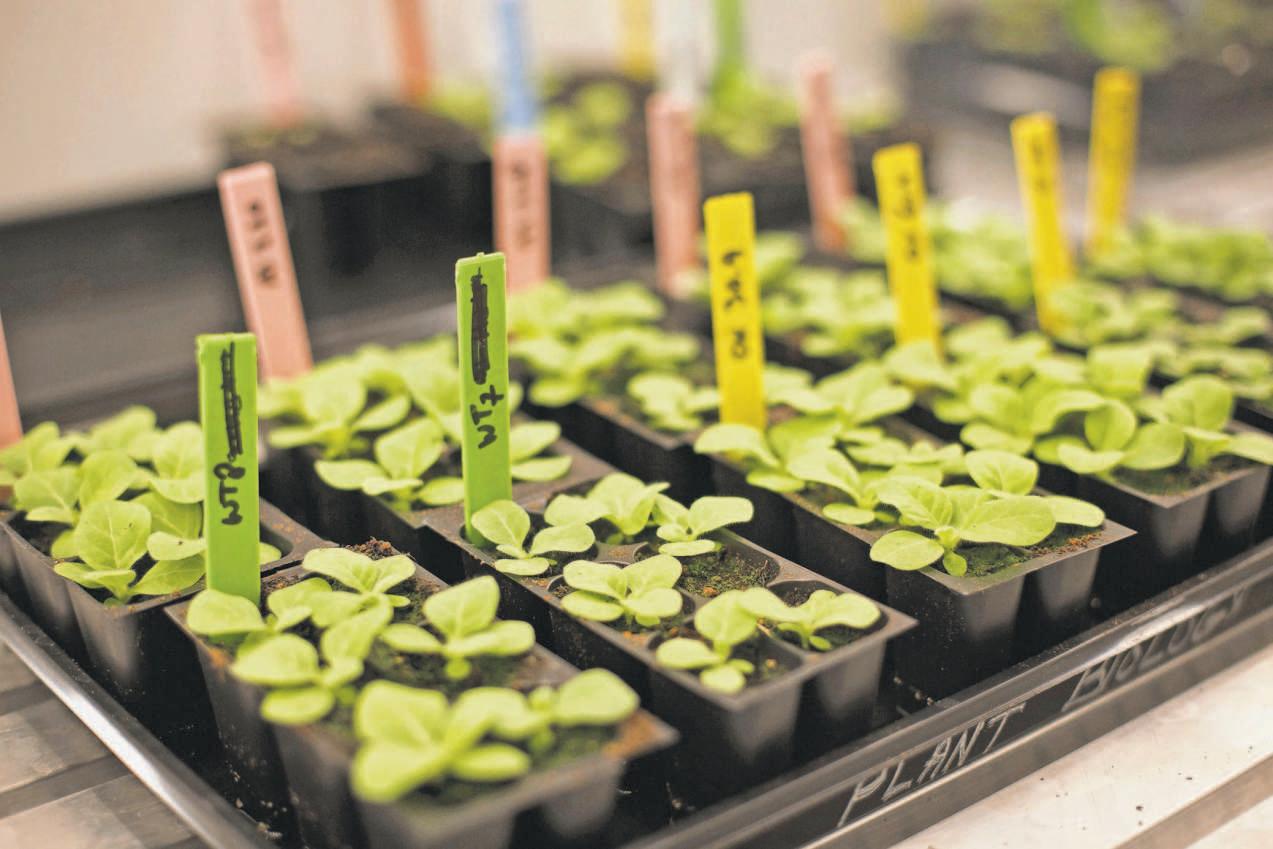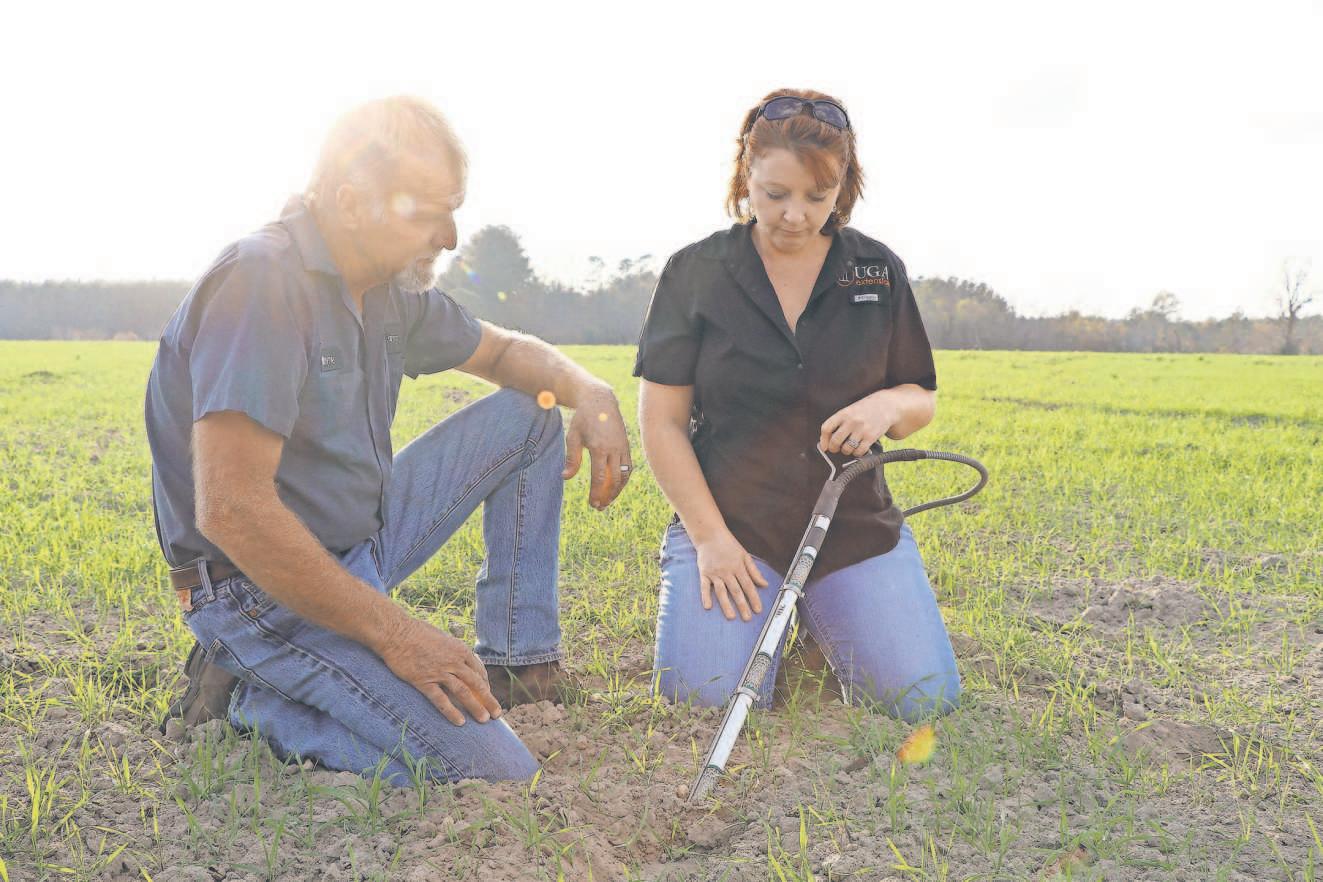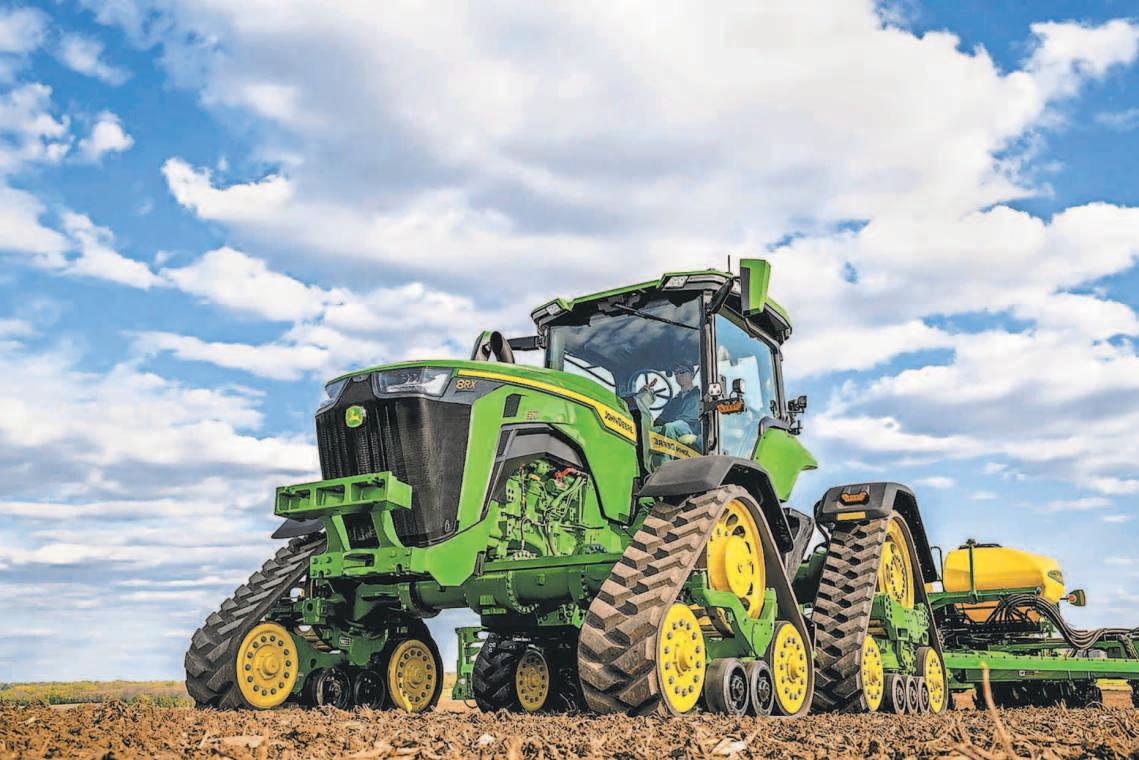
7 minute read
BROADBAND EXPANDS
TECHNOLOGY
A worker strings lines for broadband for Southwest Arkansas Telephone Cooperative, near Texarkana, Ark. JAMES PENDLETON/USDA RURAL DEVELOPMENT
Advertisement
Connecting the Country
By Patricia Kime
WHEN CABLE, DIGITAL AND fiber-optic lines began replacing dial-up internet access to homes and businesses across the country earlier this century, residents of Mecklenburg, Va., and neighboring counties patiently waited for Comcast, Verizon or another provider to bring service to their communities.
But it never happened. And 20 years later, this remote region between Richmond, Va., and Raleigh, N.C., remains a high-speed internet desert. Households and farms struggle to connect, often relying on cellular hotspots or satellite connections that come with data limits, buffering problems and unreliability.
“You hear those stories that our kids have to go to the library where there is broadband or a fast-food restaurant to complete homework, downloading files in parking lots (when the places are closed). It’s true,” said David Lipscomb, vice president of member and energy services at Mecklenburg Electric Cooperative (MEC) in Chase City, Va.
Seeing the digital revolution pass by




TECHNOLOGY
The USDA’s ReConnect program is providing the resources for cotton farmers in Clinton, N.C., to utilize new technology and analyze crop data.

JAMES PENDLETON/USDA RURAL DEVELOPMENT
— Lipscomb said many in the area don’t even know they can access instructional videos on household and equipment repairs on YouTube or elsewhere — MEC customers began asking in 2016 whether the company could help.
Its leadership said yes. “Rural America matters. Our kids deserve the same opportunities that kids do elsewhere,” Lipscomb said. “This gives us the opportunity to help level the playing field … we can bring this to our communities.”
As of January, MEC has established a portion of a 135-mile “backbone” fiberoptic line that eventually could serve up to 25,000 customers. And they’ve done it, in part, with funds from the U.S. Department of Agriculture’s Rural Development Broadband ReConnect Program.
In late 2018, recognizing the need for connectivity and its impact on economic development on farms and in rural communities, USDA established ReConnect, a grant and loan program designed to help towns, internet service providers, telecommunications companies and electrical co-ops build broadband networks in the regions where they operate.
The first year USDA solicited applications for what was expected to be $600 million in grants, loans or a combination of both, it received $1.4 billion in requests — 146 applications from 41 states, according to USDA Rural Utilities Service Administrator Chad Rupe.
Rupe said most of the applications came from the small companies that provide electricity or telephone service to NEARLY 163 MILLION AMERICANS LACK ACCESS TO BROADBAND SOURCE: Microsoft
CONT INUED
CLOSING THE DIGITAL DIVIDE
As small companies and co-ops expand into the internet service provider field, the Federal Communications Commission (FCC) is taking steps to improve access in rural communities, putting new rules on its Rural Digital Opportunity Fund program that will make sure new networks in rural communities will be able to keep up with future demand.
The FCC has been seeking comment on its program that would direct up to $20.4 billion to expand broadband access. “If FCC ultimately approves these proposals, millions more rural homes and small businesses would be connected to high-speed broadband networks providing up to gigabit speeds,” FCC officials said in a release.
The plan is to distribute the funding in two waves following two rounds of reverse auctions: $16 billion to start in 2021 and more than $4 billion in the second wave.
But some lawmakers and advocates are concerned that the FCC’s efforts, which could take up to a decade to implement, will not keep pace with the speed of technology.
“It would be an inefficient use of resources to promote services that cannot keep pace with consumer demand and the evolution of broadband in urban areas,” Sens. Amy Klobuchar and John Thune stated in a Dec. 9, 2019, letter to the FCC.

TECHNOLOGY
rural areas.
“The reason rural Americans got electrification in the 1930s is because of the Rural Electrification Act and a commitment by these providers to provide that service to these areas. We often find these companies have a strong commitment … to go out and serve their neighbors,” Rupe said.
USDA chose 25 recipients in 17 states for the funds in the first round. To date, the program has distributed $230 million of the planned $600 million. USDA now is moving into its second round of ReConnect awards and was seeking applications through this March for up to $550 million in funding.
According to Rupe, there will be another round next year, thanks to funding provided in the omnibus spending bill signed by President Donald Trump on Dec. 20.
“We’re here to finance sustainable, feasible operations. We want good management. We want good partners. We want people to deliver what they say they are going to do,” Rupe said. Awardees are chosen based on their ability to provide reliable service to farms and ranches, small businesses, health care facilities and for education and quality-of-life improvements. They also must build infrastructure that will supply consumers access at speeds of at least 25 megabits per second download and 3 megabits per second upload.
At their fastest, dial-up modems perform at 56 kilobytes per second.
“When we are looking at an area, we want to invest once and not have to invest over and over again to provide long-term sustainability,” Rupe said. “We want to make sure that we get a backbone into the area to offer that opportunity as technology advances.” The Federal Communications Commission (FCC) estimates that 25 million Americans lack access to broadband. In its definition of access, the FCC includes residents who have a school or library in their census district that has high-speed internet. In a new report, Microsoft said that the figure is much higher: nearly 163 million Americans.
“In 2020, broadband is no longer a luxury; it’s a necessity. In one area, it’s quality of life – schools, hospitals and telemedicine, which is critical, connectivity for first responders and social conversations and dialogue,” said R.J. Karney, director of congressional relations at the American Farm Bureau Federation.
But he added that it’s also necessary to improve farm yield and build and sustain rural communities. Precision agriculture, which uses technology to determine the most efficient land, water, fertilizer and herbicide and insecticide use, and access to the economy and global marketplace, requires speedy internet connections to homes, farms and ranches.
“Farms aren’t just empty fields where just crops are growing. Farmers need connectivity in their offices, at the dairy, downloading the tractor information, GPS … having reliable, affordable broadband access is critical to the farmer and rancher,” Karney said.
For those living and doing business in rural America, high-speed internet can’t come fast enough. In Surry, Va., just 12 miles from the College of William & Mary in Williamsburg, few households or businesses have reliable internet connections, let alone broadband.
Cindy Scott is a partner at Chris C. Scott Logging in Waverly, Va. “The lack of internet service of any kind is hard. It’s hard to pay taxes online and make ...updates with Quickbooks,” she said. “If something is not done we will have to move business to another county.”
Even with ReConnect funds and businesses willing to build the infrastructure, the process is not quick.
MEC first began exploring the broadband business in 2017. A Virginia Tobacco Region Revitalization Commission grant and the ReConnect loan helped jumpstart the backbone line that eventually will serve 3,000 customers living within 1,000 feet of the main line.
Then it will build offshoots from the main line to reach other customers.
So far, just 60 customers have been connected, Lipscomb said. “This is important to us. We really want to bring internet to our customers without building the infrastructure on their backs. Programs like ReConnect make it a doable project.” “Rural America matters. Our kids deserve the same opportunities that kids do elsewhere. This gives us the opportunity to help level the playing field … we can bring this to our communities.” — DAVID LIPSCOMB, Mecklenburg Electric Cooperative

BE KNOWN AS THE ‘GREEN-THUMB’ OF THE FINANCIAL WORLD.












